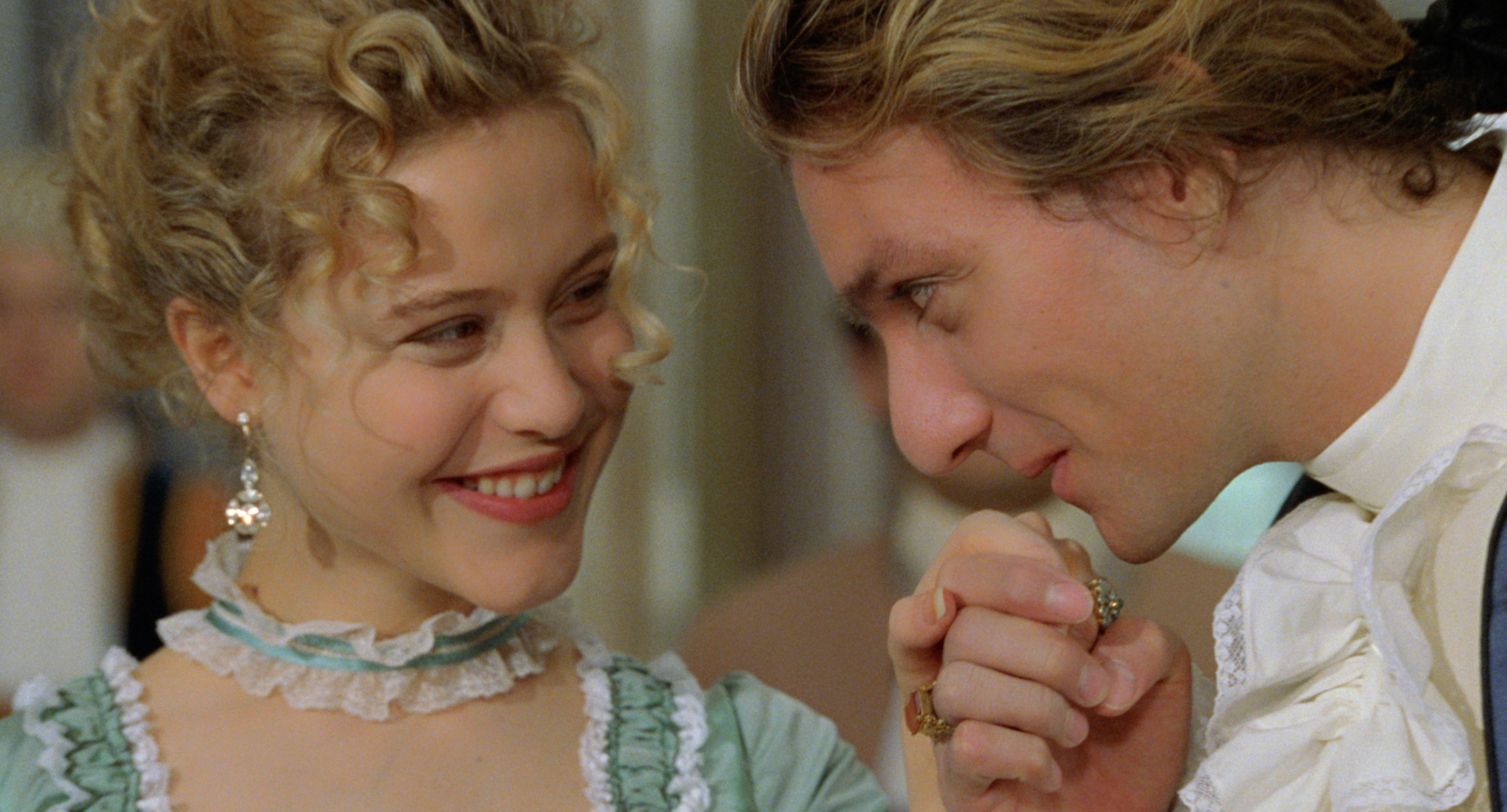Lina Wertmüller’s historical romance Ferdinando & Carolina tells the story of a love bound by circumstance and empowered through destiny.
Ferdinando and Carolina are both brought up through choices and political circumstances beyond their control. As a child, Ferdinando’s father is called to become the King of Spain, leaving the junior Ferdinando as the child king of Napoli. He carries on an open love affair with Medina, a Sicilian woman, but he knows his fate is to marry into Austria’s Hapsburg family. He is betrothed first to the eldest daughter, then the second eldest, both of whom die from smallpox, and he eventually gets to Carolina, the most suitable surviving sister. Carolina herself is trapped in a fate originally destined for her elder sister(s), and is devastated to be stuck as the wife of “big nose,” as she and her sisters call him. None of them want to marry him, but smallpox and political obligation make her the “winning” bride-to-be.
That a forced institution brings this couple together makes their eventual meeting all the more touching, and surprising. Though initially shy and awkward, they open up to each other on their wedding night when they discover each other wears bands of horns, charms to ward off against the malocchio (evil eye). Being brought up in a world void of choice and agency, arming oneself with an amulet to protect against bad luck reflects a means of self-empowerment to regain some control in one’s life.
Outside forces continue to shape and manipulate the pair, well into their marriage. Political rivals procure a “Venus”-like woman to tempt Ferdinando, successfully, and look to awaken Carolina’s infidelity as well by igniting jealousy through gossip. One night, however, Ferdinando returns to their bed where Carolina is sound asleep; he expects to catch some murmur or evidence of her unfaithfulness, but instead she says his name in her sleep. Even in dreams, he is who she thinks of. His fear, and any thoughts of future infidelity, are vanquished when her love for him is reaffirmed.
Carolina’s subconscious love for Ferdinando is not one of choice, another indicator that their union is one of destiny. Whatever its origins, her love for him comes deep from her soul, and is more than an ambition-driven marriage of strategy and political gain. Just as their lack of control comes from fate and political circumstance, Carolina is just as bound by the power of her heart; even though her rational mind knows Ferdinando is unfaithful, she cannot help but dream of him lovingly in her most private, intimate moments.
A love story bound by political circumstance, rather than caught up in class struggles, make this an interesting entry in Lina Wertmüller’s filmography. Themes of power and class, explored through many of her earlier films, are certainly still present here, though the ends are less primal than sheer survival; here, the bottom line comes to more romantic notions of love and pursuing one’s desires. It is somewhat optimistic: in this story, an arranged marriage, in which the groom is a hopeless womanizer and bride is the third in line, is formalized in the least romantic of circumstances but survives and even thrives in an authentic, often moving way.

Leave a Reply